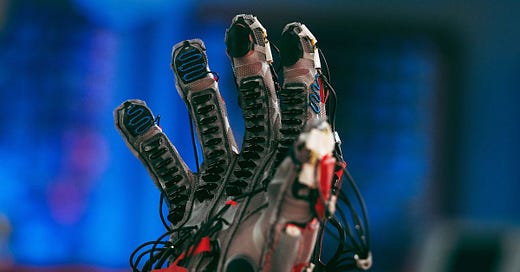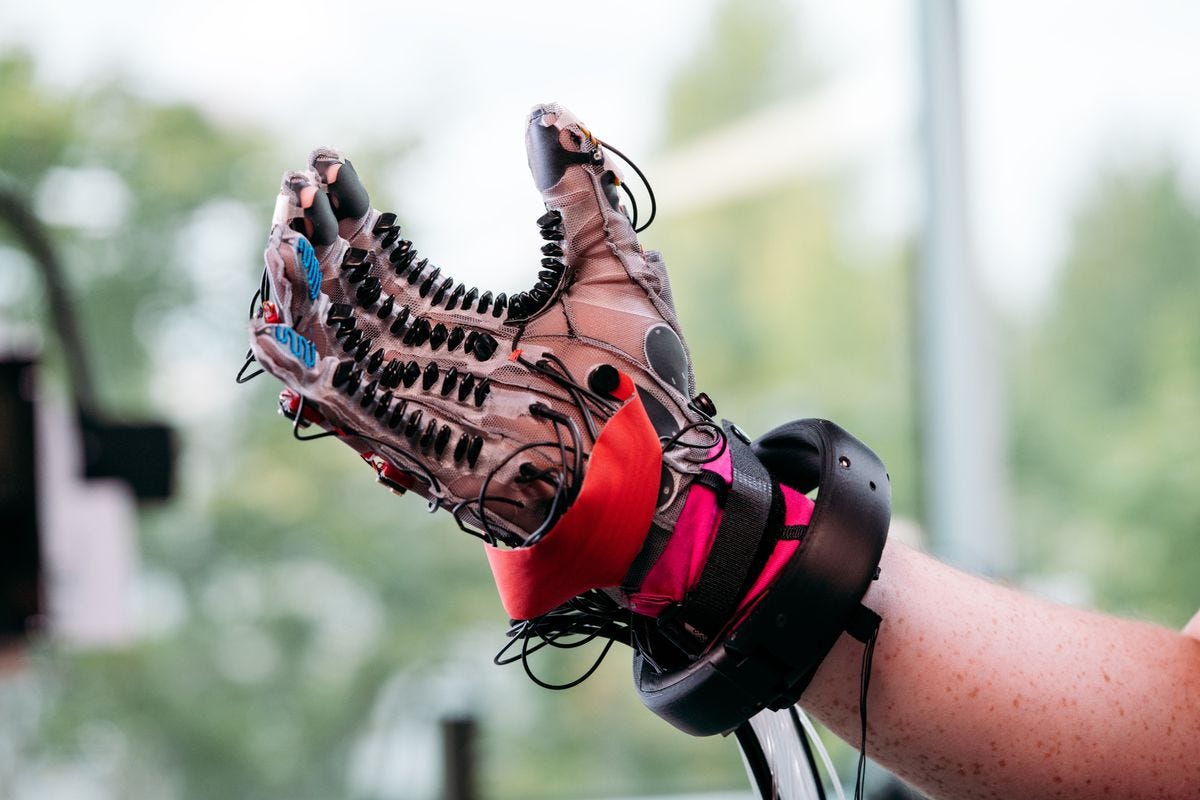This Week in New Age Technology: 11_23_2021
Bite sized news on disruptive technology, every week.
Watch Pt 1 of the summary on Tiktok
Robotics 🤖
Meta’s Research Division Shares First Look at Haptic Gloves
This Week Meta's Reality Labs research division released a sneak peak of their first Haptic glove, a force feedback device that simulates sensation in virtual environments.
The prototype inflates 15 separate actuators that create pressure on different parts of your hand.
While the company plans to scale the actuator density into the thousands, they already face real challenges bringing them to market.
Just to name a few, the gloves need a dramatic size reduction, they still need to go fully wireless, there's a big challenge with sizing, and the question of how to clean a high tech glove.
Regardless, if they can build a haptic glove system, they'd guarantee it to work on the Quest headset and further encourage app developers in their ecosystem.
Update on Google’s “Everyday Robot” Project
Google’s Alphabet shared an update out of their subsidiary "X - the moonshot factory".
The Chief Robot Officer announced in a blog post, "We are now operating a fleet of more than 100 robot prototypes that are autonomously performing a range of useful tasks around our offices,”
The project, called "Everyday Robots" has the goal of making general purpose robots that are as easy to use as computers.
And while we're still a ways away from that, it's cool to see progress out of the lab on campus.
Artificial Intelligence👩💻
NVidia Debuts Omniverse and Omniverse Avatar
Earlier this month the company Nvidia debuted its Omniverse product at their recent AI conference.
Omniverse is a collaboration tool for building virtual worlds.
Designers can work together building virtual environments and share them seamlessly across platforms like Adobe, Autodesk, Unity, and Unreal Engine.
But the most provocative announcement was their Omniverse Avatars, pre-trained AI models for everything from customer service, to story game characters.
Don't get too excited though because these digital robots will cost $1000 per avatar per year.







